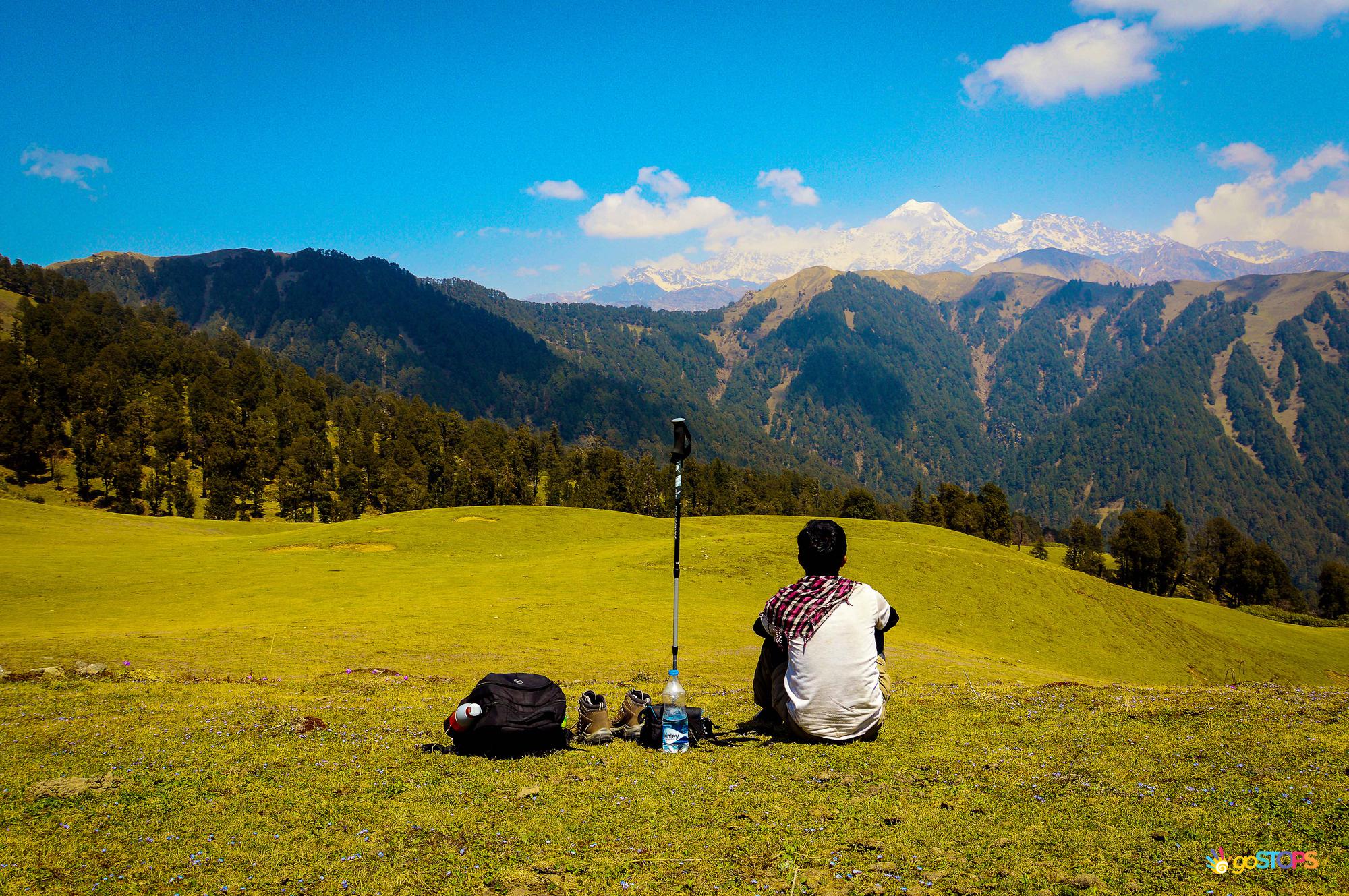Exploring The Equation Of Sustainability & Backpackers
Backpacking emerged out of a need to seek spirituality, brotherhood, fellowship, and, well… marijuana. The 1950s and 60s were rife with young breakaways, trudging their way across continents to head to Asia - the hippie trail was the wave that the backpackers rode. The trail died down but backpacking picked up pace and is a distinct style of travel today.
Keeping things cheap and packing light inadvertently contributed to sustainability and environmentalism. Today, sustainability is one of the main pillars keeping our planet from failing, but one that itself is failing fast. Whether they do it consciously or not, backpackers act sustainably in more ways than one, leading to some meaningful insights to be gleaned from them.
Paving Their Own Paths
There’s a reason you don’t see the typical backpacker crowd at popular tourist destinations. Backpackers are staunch about being off the beaten path when it comes to destinations, trekking their way across on their own terms. This insistence stems a lot from their motivations - the urge to throw yourself headlong into an authentic experience. On the receiving end are local communities who play host to these wanderers and explorers.
Backpacking in its nature requires you to get your hands dirty and to stay that way before you can get yourself a good shower. But in having no demands for luxuries, they make the perfect guests for local accommodation facilities, where simplicity and efficiency go hand in hand. Needless to say, it’s this sort of local accommodation that nails the ‘eco-friendly’ mandate without having to try too hard at all.
Backpackers tend to carry fewer things and eat local, helping local communities.
In having no qualms about the food they eat, they help local markets and eateries, promoting local produce. Backpacking involves pockets that are more empty than full, and the need for a minimal yet steady budget leads backpackers to seek out forms of employment. No matter how big or small, they help fill labor shortages, all while benefiting the local economy. The larger picture seems to have a positive impact on overall economic sustainability.
The Human Connection
A tweet chat by Africa-based Sustainable Travel & Tourism Consulting discussed the motivations of backpackers, among which a recurring theme was that of ‘escape’. Indeed, backpacking involves a long, often open-ended journey away from home, from mundane everyday life and a 9 to 5 job. But escapism isn’t the only goal; travel has always been seen as an escape, even if a temporary one. Backpackers are also motivated to seek freedom, adventure, independence, and to a large extent, to find out more about themselves.
Backpacking is then a quest for personal growth and self-discovery, a hunt for something authentic that breaks away from the sheltered confines of mass tourism. However, at no point was sustainability one of the main motivations of backpackers, and in fact, backpackers in some regions of the world started to develop a bad reputation due to their boisterous ways.
But today, sustainability is a tag that goes hand in hand with backpacking, and is one of the reasons why more and more people are turning to this style of travel. Medium has an interesting take on this with the social identity theory, which argues that individuals make conscious efforts to become members of social groups to fulfill their need to belong to one. In this light, people are increasingly adopting sustainable travel as a means to better identify as a backpacker and be a part of that social group.
Self-discovery, introspection and sustainability are becoming the core aspects of the backpacking community, and backpackers across the world are embracing it.
Too Much Of A Good Thing
India itself has seen a rise in backpacking and related trends. Around 94% of the respondents to an Airbnb and YouGov survey said that they would look at sustainable travel when they step out of their homes in 2021. According to a 2018 study by Think With Google, experience-oriented travelers, defined as those who prioritize specific activities and experiences when traveling, spend around $190–$210 on domestic trips. They research extensively, both offline and online, for ‘authentic’ experiences.
But this segment is not made up largely of backpackers in the least. Plus, sustainable travel doesn’t equate with frugal travel, and there is an increasing number of options that give you sustainability with luxury and authentic local experiences as well. This brings us to the possible pain point - does mass tourism ride the backpacking wave into offbeat, local areas?
How far does backpacking actually help sustainability in local places is the latest question.
A noticeable trend has been observed in Ghana, where local produce has become more expensive in Cape Coast due to the rising backpacker presence. Their preference for all things local has led to the price hike. Gokarna, once a destination whispered only among the backpacking and offbeat travel community, has seen a massive increase in tourist footfall over the past decade. No longer is it what one considers ‘offbeat’.
And now, after the world has been altered by a pandemic, it’s places like Gokarna that are in demand. Airbnb’s recent study looks at how offbeat destinations are being frequented since an increasing number of people are fleeing urban areas in search of offbeat, ‘authentic’ experiences. goSTOPS Naggar and Palampur have seen over 370 and 620 bookings respectively thus far in 2021, and this number is steadily on the rise.
More and more people are adopting the motivation behind backpacking without wanting to give up too many creature comforts. It brings to question how much the authenticity of an area is distilled when more and more people flock to experience it, how much of its organic nature it retains in the face of specific demands.
Conclusion
On a personal level, it’s admirable how backpackers let go, tackling the struggle that travel can be when money can’t afford the luxuries we’ve taken for granted. After all, we’ve been taking the planet for granted for far too long; whether it’s the IPCC’s report or the glaringly obvious climate change around us, it’s an undeniable truth. Sustainability is certainly something that needs to be front and center across all phases of life, and there’s no denying that when it comes to travel, the backpacking community certainly pioneered it.
Upcoming Experiences
[[ event.name ]]
[[event.duration]]
From [[price.price | number:0]]
From [[event.price | number:0]]
Free
[[ batch.startdate|date]] [[batch.soldout ? ' (Soldout)':'']]

